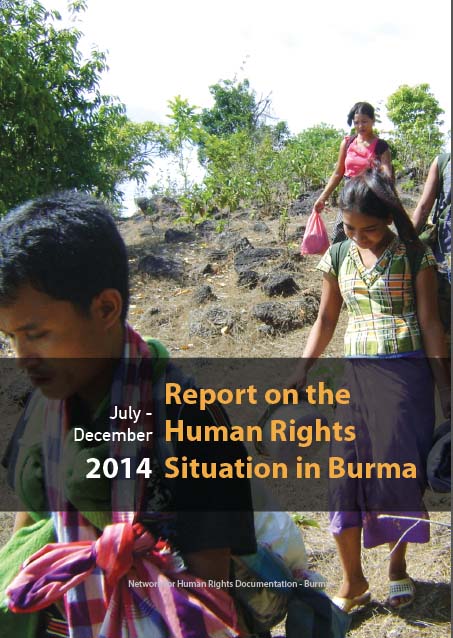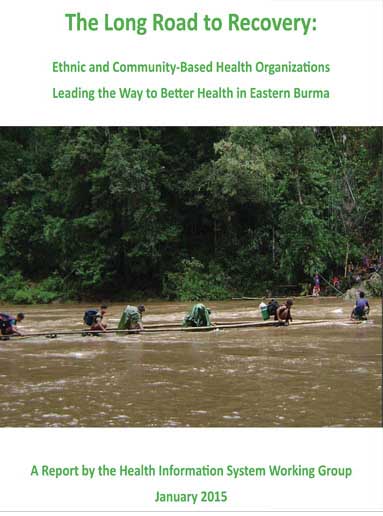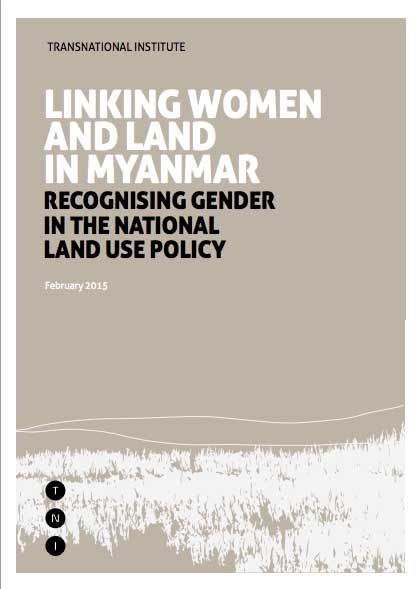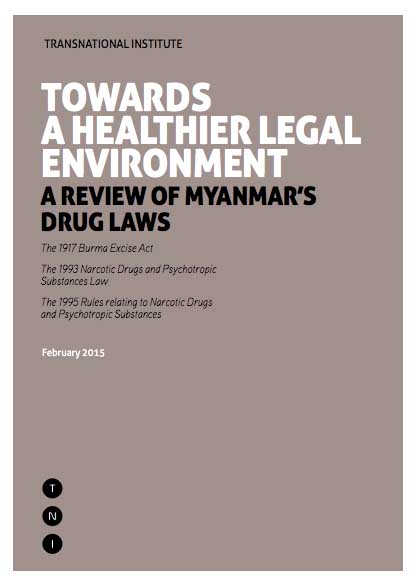Human Rights (383 found)
Statement by Ms Yanghee Lee, Special Rapporteur on the Situation of Human Rights in Myanmar at the 28th Session of the Human Rights Council
I thank you for this opportunity to address the Human Rights Council for the first time, at a pivotal time in the reform process in Myanmar.
• • •Karen Rivers Watch Statement on International Day of Rivers and Against Dam
On the International Day of Action for Rivers and Against Dams, Karen Rivers Watch renews its call for the suspension of all dam projects in Karen State and other ethnic states […]
• • •New report by Network for Human Rights Documentation – Burma Details Continuing Human Rights Violations by Burmese Military against its Citizens
 ND-Burma has published its periodic report covering the second-mid period of 2014 and focuses on 107 documented cases of human rights violations in Burma from July to December 2014. The violations documented during these six months occurred in areas of armed conflict but also in areas covered by ceasefires.
ND-Burma has published its periodic report covering the second-mid period of 2014 and focuses on 107 documented cases of human rights violations in Burma from July to December 2014. The violations documented during these six months occurred in areas of armed conflict but also in areas covered by ceasefires.
ND-Burma’s findings demonstrate that, despite progress in reaching ceasefire agreements with non-state armed groups, the government has made little progress protecting the human rights of its citizens. Furthermore, continued arrests of human rights defenders demonstrate that the government is not serious about working with civil society to protect human rights […]
• • •Advance Unedited Version: Report of the Special Rapporteur on the situation of human rights in Myanmar, Yanghee LEE
Since 2011, Myanmar has undergone far-reaching changes that have affected many aspects of life in the country. However, there continue to be signs of backtracking by the Government and increasing concerns over discrimination and ethnic conflict […]
• • •Amnesty International Annual Report – Myanmar Chapter
Despite ongoing political, legal and economic reforms, progress on human rights stalled, with some backward steps in key areas. The situation of the Rohingya deteriorated, with ongoing discrimination in law and practice exacerbated by a dire humanitarian situation. Anti-Muslim violence persisted, with the authorities failing to hold suspected perpetrators to account. Reports of abuses of international human rights and humanitarian law in areas of armed conflict persisted. Freedoms of expression and peaceful assembly remained severely restricted, with scores of human rights defenders, journalists and political activists arrested and imprisoned. Impunity persisted for past crimes […]
• • •Assistance Association for Political Prisoners (Burma) and Former Political Prisoners Society (FPPS) Documentation Project Interim Report: February 2015
To date, government efforts to assist former political prisoners (FPPs) to acclimatize and reintegrate into society have been largely nonexistent in Burma. The effects of this inaction have, and continue to be hugely detrimental for the FPPs, their families, and for transitional justice efforts in the country. This inaction has become even more pressing since the government of Burma began releasing hundreds of political prisoners1 in a wave of amnesties following the 2011 political reforms […]
• • •The Long Road to Recovery: Ethnic and Community-based Health Organizations Leading the Way to Better Health in Eastern Burma
 A new report, based on the first large-scale health survey in eastern Burma since recent ceasefires, shows some improved health indicators, linked to programming of local ethnic health providers, but highlights that sustained improvements to the overall health of conflict-affected communities remain dependent on the peace and reform process, and may take decades […]
A new report, based on the first large-scale health survey in eastern Burma since recent ceasefires, shows some improved health indicators, linked to programming of local ethnic health providers, but highlights that sustained improvements to the overall health of conflict-affected communities remain dependent on the peace and reform process, and may take decades […]
Amnesty International’s Written Statement on Myanmar to the UN Human Rights Council, Ahead of the 28th Session of the Council from 2-27 March 2015: Human Rights Under Threat
Myanmar’s backsliding on human rights reforms – only a few months before the general elections – underscores the necessity of the UN Human Tights Council to adopt a strong resolution on the situation of human rights in the country and to extend their mandate of the Special Rapporteur on the situation of human rights in Myanmar, according to Amnesty International on February 18 […]
• • •Linking Women and Land in Myanmar: Recognising Gender in the National Land Use Policy
 The draft National Land Use Policy (NLUP) that was unveiled for public comment in October 2014 intends to create a clear national framework for managing land in Myanmar1. This is a very important step for Myanmar, given the fundamental importance of land policy for any society – particularly those with recent and complex histories of political and armed conflict and protracted displaced populations. With 70% of Myanmar’s population living and working in rural areas, agriculture is a fundamental part of the country’s social and economic fabric. The majority of these are small-holder farmers, whose land rights are currently under threat. The situation is particularly dire for the country’s ethnic minority groups, who make up an estimated 30% of the population […]
The draft National Land Use Policy (NLUP) that was unveiled for public comment in October 2014 intends to create a clear national framework for managing land in Myanmar1. This is a very important step for Myanmar, given the fundamental importance of land policy for any society – particularly those with recent and complex histories of political and armed conflict and protracted displaced populations. With 70% of Myanmar’s population living and working in rural areas, agriculture is a fundamental part of the country’s social and economic fabric. The majority of these are small-holder farmers, whose land rights are currently under threat. The situation is particularly dire for the country’s ethnic minority groups, who make up an estimated 30% of the population […]
Transnational Institute: Towards a Healthier Legal Environment – A Review of Myanmar’s Drug Laws
 This report reviews Myanmar’s drug laws and related policies, including the 1917 Burma Excise Act; the 1993 Narcotic Drugs and Psychotropic Substances Law; and the 1995 Rules relating to Narcotic Drugs and Psychotropic Substances. Since these laws were enacted several important changes have taken place inside and outside of Myanmar […]
This report reviews Myanmar’s drug laws and related policies, including the 1917 Burma Excise Act; the 1993 Narcotic Drugs and Psychotropic Substances Law; and the 1995 Rules relating to Narcotic Drugs and Psychotropic Substances. Since these laws were enacted several important changes have taken place inside and outside of Myanmar […]

 All posts
All posts